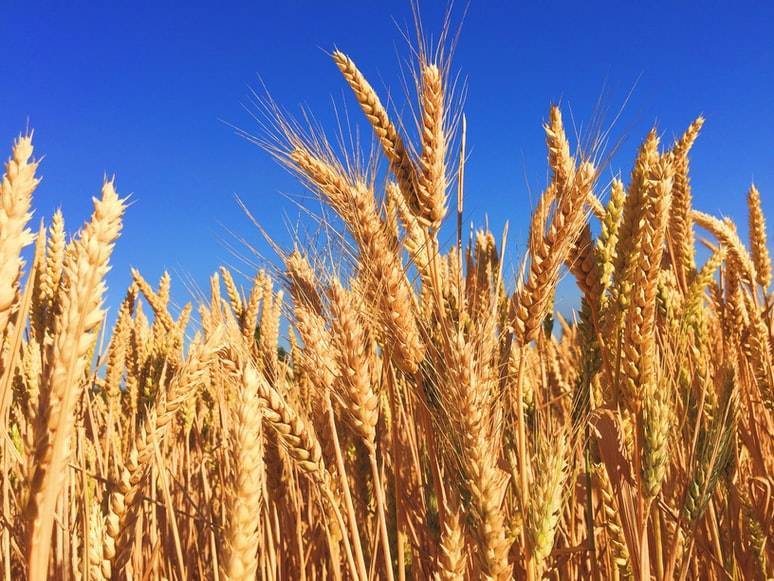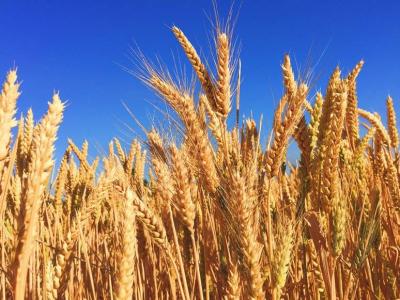A frantic race has begun to stockpile grains, which will have "consequences for everyone": the alarming collapse of the agricultural powerhouse that Ukraine represents raises the issue of global food security, from the Mediterranean Sea to the borders of Asia, says French researcher Sébastien Abis. The Managing Director of the International Monetary Fund, Kristalina Georgieva, stated that "the war in Ukraine means hunger in Africa," while United Nations Secretary-General Antonio Guterres warned of a "hurricane of famines" that could strike many originally vulnerable countries.
Sébastien Abis emphasizes that "food insecurity is first imposed on Ukrainians, as many families are forced to flee while those remaining face problems providing food with bullets flying around them." However, panic soon gripped the world. Abis states, "Markets have overreacted because Ukraine is a major exporting power: prices have risen as everyone wonders who will be able to compensate for Ukrainian supplies of wheat, corn, or sunflower oil," which Kyiv supplies 50% of in global trade.
Some countries, such as Egypt—which imports 90% of its wheat from Russia and Ukraine—have lowered their import forecasts or begun searching for alternative sources. Egypt has chosen other countries such as Argentina and decided to suspend its own exports for national food security, such as soybean oil, of which it is the largest exporter in the world.
Corn Under Which Flag?
In the medium term, several questions arise according to the researcher: "What will happen if the stored Ukrainian corn falls into Russian hands? Will we be able to buy it under the threat of sanctions? Will these products be sold under the Russian or Ukrainian flag?" More broadly, he adds, "Can Russian-origin products continue to circulate? Some countries, given their needs, will continue to buy them."
Pointing out that Russia itself has "restricted its grain exports to Eurasia," which includes Kazakhstan, Belarus, Armenia, and Kyrgyzstan, he questions the destination of these products, noting that "China is facing a significant drought and will have to increase its imports." The rising prices now represent a major concern for all importing countries: Libya, "which gets two-thirds of its wheat from Russia and Ukraine," Indonesia, "the second-largest buyer in the world," Ethiopia, "which depends on Russia for more than 30% of its imports," as well as Pakistan, Turkey, and Eritrea.
He says, "A ton of wheat is sold between 380 and 440 euros, which is unaffordable for importing countries. Could there be a 'geopolitical price' for wheat for some countries to prevent them from falling into major political instability? The United States is considering this."
There Is Not Much Left to Lose
He describes the crisis as one that "will affect everyone." In France, "we could see social unrest due to this insecurity. People do not go out to protest without risk. But when the stomach is empty, they no longer have much to lose." As global prices have surpassed the record levels of 2008 that led to food disturbances, he notes that "in Iraq, protests have been organized all weekend against rising prices."
The Food and Agriculture Organization of the United Nations (FAO) has warned that an additional 8 to 13 million people worldwide may suffer from malnutrition if food exports from Ukraine and Russia are halted for an extended period, estimating that the areas planted with corn and sunflowers "will decrease by 30% this spring in Ukraine."
He states, "We are in a global crisis. Even if the war stopped tomorrow, there would still be consequences," especially due to the destruction of part of Ukraine's logistical infrastructure. He adds, warning, "The longer the war lasts, the greater the global instability becomes. If we face a significant climatic disruption tomorrow in addition to that—like another severe drought in North America or heavy rains in Australia—it would be catastrophic."




